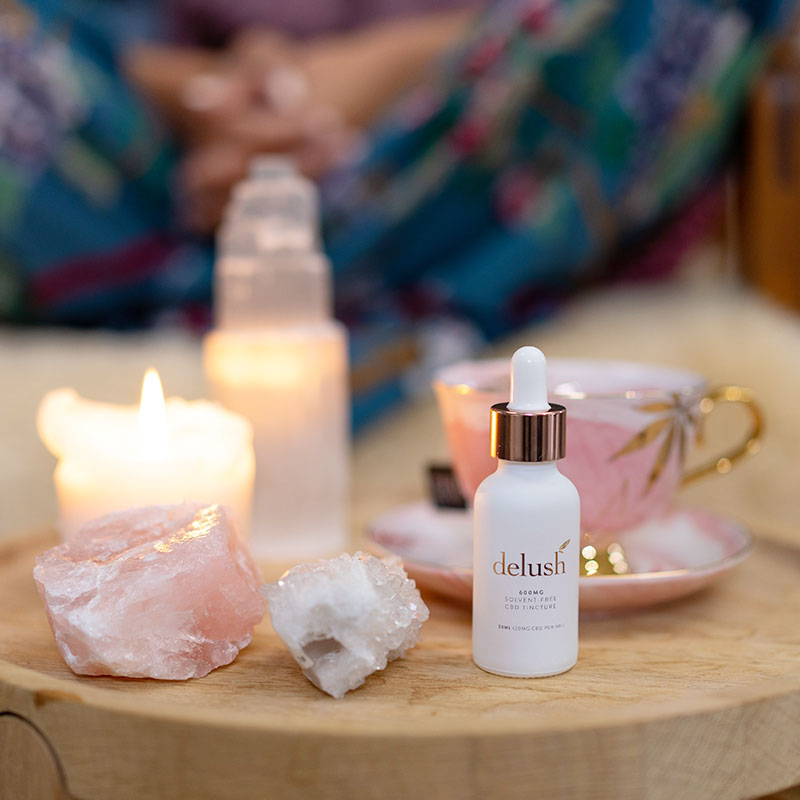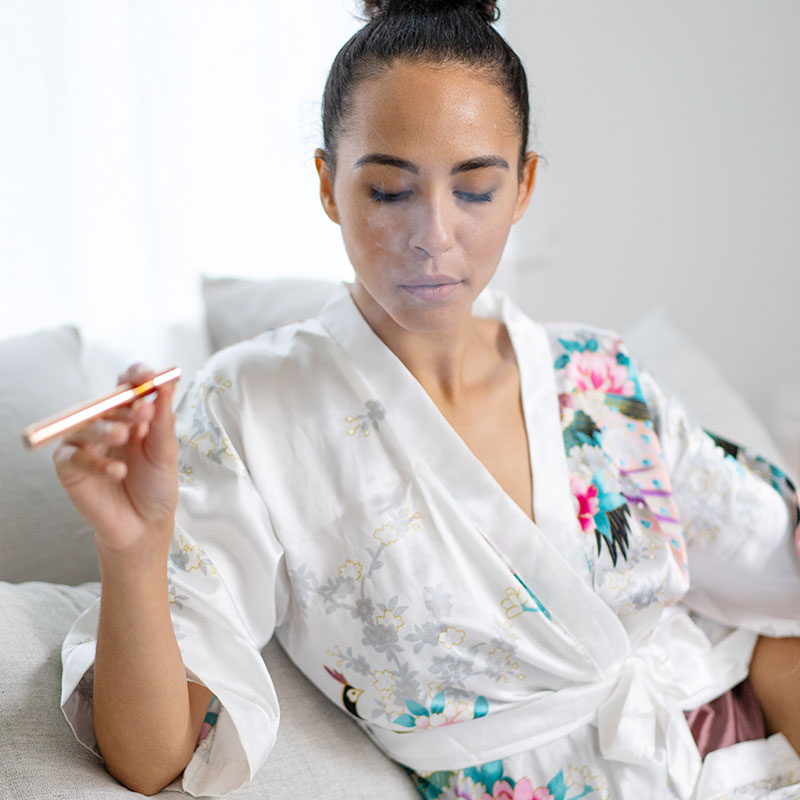04 Jan Melatonin or CBD… Which Helps You Sleep Better?

Melatonin or CBD… Which Helps You Sleep Better?
If you’ve ever struggled to obtain a decent night’s sleep, you know how debilitating it can be. While popular sedatives may provide the relaxation you need, they are often associated with a list of health concerns. Fortunately, if you’re looking for a more natural solution, a quick Google search will mention both melatonin and CBD for sleep as viable options.
In this article, we’ll look at both melatonin and CBD oil for sleep with a comparison of the two, to determine which may be the best option for you.
Melatonin as a Supplement for Sleep
Melatonin can be taken as a supplement to aid with an imbalanced sleep/wake cycle. Specific melatonin receptors in the brain are activated by synthetic melatonin. However, this supplement is solely intended for short-term use only. There are no long-term studies on the use of melatonin at this time. It is not intended to be taken as a nightly sleeping pill, but rather to reset the sleep/wake cycle. Once your body has a sufficient amount of melatonin, it should only utilized on as as-needed basis.
When it comes to melatonin, less really is more. Melatonin can actually be overdosed, believe it or not. It’s possible to tip the balance to the point where you’ve taken too much because it’s a natural hormone that can become unbalanced. An overdose can cause sleepiness during the day, nightmares, vivid dreams, or any of the following symptoms: headache, dizziness, and nausea. Short-term depression, minor tremors, mild anxiety, joint discomfort, diarrhea, cramps, diminished alertness, confusion or disorientation, and abnormally low blood pressure are some of the other symptoms you may experience. In addition, melatonin comes with a long list of medications that it interacts with!
Melatonin May Only Be a Temporary Solution
Melatonin’s temporary relief could signal that you have an underlying sleep issue, such as chronic pain or sleep apnea. However, what are the most common causes of insomnia? Typically, it is associated with stress, anxiety, and depression.
You may have difficulty falling asleep, staying asleep, or sleeping soundly. Hours are wasted fretting about your to-do list or every humiliating thing you did in high school as you flip in bed like a pancake. Addressing your underlying sleep troubles by reducing stress, worry, and sadness may be a better option. Here’s how!


CBD Oil for Sleep as a Long-Term Solution
When you use CBD oil for sleep, it has anti-stress, anti-anxiety, and antidepressant properties. These CBD advantages can help you not only get more sleep, but they can also aid with various health issues and general wellness. If you take CBD sleep pills Canada, for example, just as with melatonin, they will have an effect on our body’s G-protein coupled receptors. The CBD will bind to the cannabinoid receptors found in our endocannabinoid system (ECS). CB1 and CB2 receptors control mood, sleep, hunger, memory, and other functions.
Our high cortisol levels often disrupt our sleep patterns. The endocannabinoids 2-AG and anandamide help us cope with stress. Despite the fact that they are both members of the same stress-inhibition team, their roles are distinct. 2-AG seeks to end the threat by inhibiting the CB1 receptor when stress levels are high. By attempting to solve the situation, you are only adding to your tension and anxiety! Anandamide, on the other hand, is responsible for reducing any tension or pain. Anandamide levels (2-AGs enemy) are elevated with CBD oil for sleep, which promotes fear extinction and lowers cortisol. When you’re less anxious, less stressed, and no longer in pain, you sleep better!
Nightly Supplementation with CBD for Sleep
CBD for sleep is considered safe and effective to take every night. It is generally well tolerated and has few side effects (although they are not common). These include: dry mouth, diarrhea, reduced appetite, and fatigue. Using CBD oil for sleep does not create any dependency issues and will continue working over time as your endocannabinoid system returns to balance

